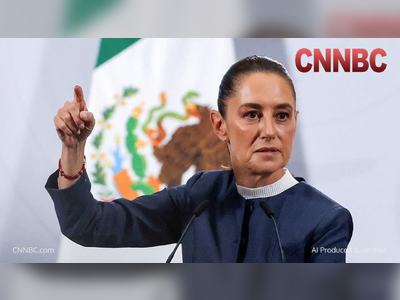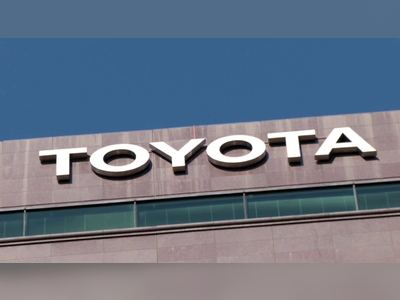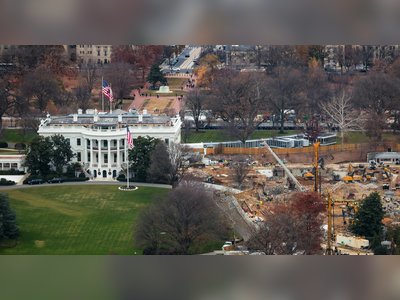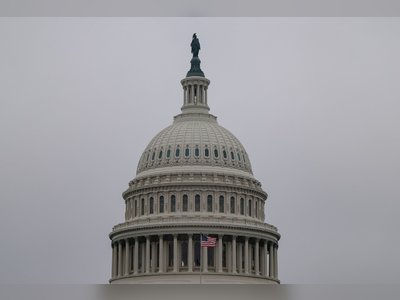Janusz Walus' Deportation Stirs South Africa’s Apartheid Scars
Release of Chris Hani’s Assassin Provokes Mixed Emotions as Nation Reflects on Past
Janusz Walus, the extremist responsible for the 1993 assassination of anti-apartheid leader Chris Hani, is set to be deported back to Poland.
His release has sparked a wave of mixed reactions across South Africa, reviving painful memories of the country’s apartheid history.
As citizens grapple with this emotional development, the case underscores the enduring impact of past injustices on present society.
Meanwhile, in the Middle East, tensions rise as Israel seeks technological assistance from Elon Musk amidst a hostage crisis in Gaza.
Israel’s president has reportedly contacted Musk in hopes of leveraging his influence to persuade former US President Donald Trump to engage in negotiations with Hamas.
The ongoing humanitarian crisis in Gaza is exacerbated, with the World Health Organization warning that without rapid intervention, the backlog of medical evacuations might take up to a decade to clear.
Thousands of sick and injured Palestinians, including minors, require urgent medical attention that is hindered by the dire circumstances.
In Afghanistan, the Taliban’s recent edict prohibiting women from training as nurses and midwives is drawing severe criticism from human rights organizations.
Denounced as an ‘outrageous act of ignorance,’ this policy further restricts Afghan women’s rights and access to education, stirring international condemnation.
On another geopolitical front, Canada is bolstering its Arctic presence in response to perceived threats from Russia and others.
This strategic move includes unveiling new patrol ships and icebreakers to reaffirm Canadian sovereignty in the region.
In corporate news, UnitedHealthcare is enhancing security measures following the tragic killing of executive Brian Thompson.
CEO Andrew Witty has announced that new protocols will be implemented to secure the safety of the firm's employees.
Lastly, the US-China tech tensions remain high as a US appeals court has upheld a law that could potentially ban TikTok or force the sale of its assets to a non-Chinese entity.
This legal decision marks another significant moment in the ongoing technological rivalry between the two nations.
His release has sparked a wave of mixed reactions across South Africa, reviving painful memories of the country’s apartheid history.
As citizens grapple with this emotional development, the case underscores the enduring impact of past injustices on present society.
Meanwhile, in the Middle East, tensions rise as Israel seeks technological assistance from Elon Musk amidst a hostage crisis in Gaza.
Israel’s president has reportedly contacted Musk in hopes of leveraging his influence to persuade former US President Donald Trump to engage in negotiations with Hamas.
The ongoing humanitarian crisis in Gaza is exacerbated, with the World Health Organization warning that without rapid intervention, the backlog of medical evacuations might take up to a decade to clear.
Thousands of sick and injured Palestinians, including minors, require urgent medical attention that is hindered by the dire circumstances.
In Afghanistan, the Taliban’s recent edict prohibiting women from training as nurses and midwives is drawing severe criticism from human rights organizations.
Denounced as an ‘outrageous act of ignorance,’ this policy further restricts Afghan women’s rights and access to education, stirring international condemnation.
On another geopolitical front, Canada is bolstering its Arctic presence in response to perceived threats from Russia and others.
This strategic move includes unveiling new patrol ships and icebreakers to reaffirm Canadian sovereignty in the region.
In corporate news, UnitedHealthcare is enhancing security measures following the tragic killing of executive Brian Thompson.
CEO Andrew Witty has announced that new protocols will be implemented to secure the safety of the firm's employees.
Lastly, the US-China tech tensions remain high as a US appeals court has upheld a law that could potentially ban TikTok or force the sale of its assets to a non-Chinese entity.
This legal decision marks another significant moment in the ongoing technological rivalry between the two nations.












